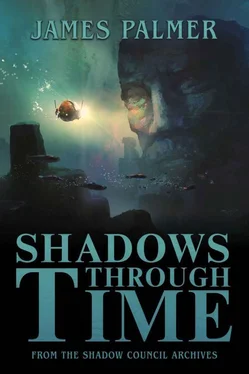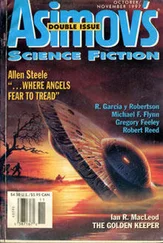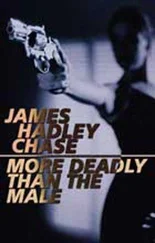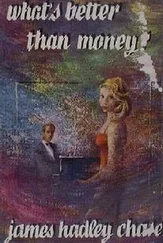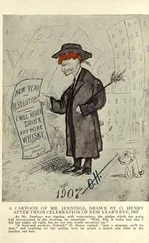Swinburne shook slightly, involuntarily, quivering with a nervous electricity that never ceased to fascinate the older explorer. “Oh, just some new lines of poetry.” He recited, “Time turns the old days to derision, Our loves into corpses or wives; And marriage and death and division make barren our lives.”
“A bit morbid,” said Burton. “But I like it.”
Swinburne shook. “Oh, it needs a spot more polishing.”
“That’s all right.” To Abberline he said, “Is this private enough for you? I can ask Algy to leave.”
“No, no,” said the Scotland Yard man. “That won’t be necessary.”
“And right so,” added Swinburne. “For wild horses could not drag me away.”
Burton scowled at his young friend. “Inspector Abberline, meet Algernon Charles Swinburne. Algy, meet Chief Inspector Frederick George Abberline.”
The two hastily shook hands before Burton offered Abberline a seat. He regarded the man now for the first time. Of average height and build, a simple brown tweed suit covering his lean frame. He wore furry muttonchops that curved into a thick mustache, and had a high forehead made all the more prominent due to his receding brown hair.
“May I get you a brandy?” asked Burton. “It’s the least I can do for assaulting you.”
“No, no,” said Abberline, dismissing the notion with a wave. “That won’t be necessary. And anyway, I’m on duty. But not on official Metropolitan Police business.”
“Oh?” said Swinburne, swinging a wooden chair around backward and straddling it. “Do tell.”
Burton shot Swinburne a warning look before taking a wingback chair opposite Abberline.
“I’ve been following you all morning,” said Abberline. “I was sent to retrieve you by a man named Mycroft Holmes. Do you know that name?”
“Should I?” Burton countered.
“He’s rather well known in British intelligence circles. Perhaps you’ve heard of his more famous younger brother, the consulting detective Sherlock Holmes.”
“Yes, I believe I have,” said Burton.
“My Aunt Flora’s pretty pink bonnet,” blurted Swinburne. “What intrigue.”
“Mr. Holmes,” said Abberline, “that is, the elder Mr. Holmes, requests your presence for a very important—and discreet—matter. I am to escort you to meet him immediately.”
Burton nodded. “And where is this meeting place?”
“The Diogenes Club,” said Abberline.
Swinburne quivered in his seat, making a noise like he was going to say something, then fell silent. Burton considered the inspector’s words. He had heard of the Diogenes Club, but so much was still shrouded in mystery. It was a gentleman’s club not unlike his own Cannibal Club, yet one open only to intellectual elitists and misanthropes. Burton had once heard a rumor that no talking was allowed at all within its walls. To violate this sacred law was grounds for immediate expulsion from the club.
Burton nodded finally. “I must say, Inspector, you have aroused my interest. I will accompany you to meet with Mr. Holmes.”
“Excellent,” said Abberline, rising from his seat. “He is expecting us.”
“Well, that’s settled,” said Swinburne. “You must go at once. And I must have another drink and tackle my verse.” He glanced at the grandmother clock in the corner. “My hat! I’m due for the lash in a bit. What ho what ho!”
Swinburne jumped from his chair and returned to the table where his lines of verse awaited him.
“Let’s get going then,” said Abberline, and the two men, taking up their hats and Burton his gentleman’s stick, left the room.
“My,” said Abberline when they emerged back onto the street once more. “If you don’t mind me saying so, your friend Swinburne is a bit of an odd duck, isn’t he?”
Burton chuckled. “You have no idea.”
“Did he say he was due for a lashing?”
Burton nodded once. “Yes. Algy has a rare condition that apparently causes his body to sense pain as pleasure.”
“Remarkable,” said the policeman.
“Indeed. There’s not another one like Algy. He also possesses a keen intellect for one so young, and he can drink ten men under the table.”
“Extraordinary,” said Abberline. “But we have bigger fish to fry. I’d best get you to Mycroft Holmes.”
Abberline hailed a hansom and gave the driver the address for the Diogenes Club. Burton sat back and pondered this new situation he found himself in, the mystery keeping his dueling memories at bay for the moment. He turned his stick in his hands and looked out the window at the hustle and bustle of London. The sky above, a cloudless blue when they entered Bartolini’s dining rooms, was now a dirty gray, as bruise-colored clouds rolled through to shroud the sun.
The Diogenes Club loomed over them frolm a nondescript, somber gray building on Piccadilly Circus, though Burton didn’t recall that being the infamous club’s original location. They got out, Abberline paid the fare, and they went up to the door. He glanced at Burton sternly. “There is to be no talking except for in the room where we are meeting Mr. Holmes.”
“I am familiar with this bizarre protocol,” said Burton. “Proceed.”
The policeman knocked three times slowly, and the door opened. A taciturn butler in the finest livery greeted them with a frown Burton took to be the man’s natural state, and they entered quietly.
Abberline stepped inside and Burton followed. The butler disappeared.
Burton’s boots sank into a dense pile of lush, lurid red carpeting. Every wall was covered in fine oil paintings and Italian frescoes. There wasn’t a speck of dust in evidence, and every stick of furniture was of the finest manufacture. It reminded Burton of Isabel’s parents’ home, formal and decadent and not the least bit inviting.
He choked up. No. Must not think of her now.
Here and there a few men sat, all well dressed, most of them scowling into a book or reading a newspaper, careful not to rustle the pages. In one room off to Burton’s right was a great fireplace with a huge boar’s head hanging upon it. Near the fireplace two men sat opposite an ornate marble chessboard, each of them staring down at their hand-carved armies of enormous marble chessmen as if frozen, like one of the paintings on the walls. Neither of them made a move in the time it took Burton and Abberline to cross their path and out of sight.
Abberline stepped up to a formidable-looking oaken door. A placard set in it proclaimed it the Stranger’s Room. Burton had heard that name uttered among his friends in hushed tones. This was the Diogenes Club’s inner sanctum. Abberline tapped on it three times, leaned his head toward the wood, listening, then opened it. Burton followed him inside.
A large man, Mycroft Holmes sat in a green wingback chair that faced the entrance to the Stranger’s Room, his right elbow resting on an ornate wood and marble side table upon which sat a cup and saucer. He wore a crisp suit obviously tailor-made for him, and he projected a haughty, self-assured air that was almost palpable. This, Burton knew, was a formidable fellow. One who was used to being obeyed.
Abberline closed the door and breathed a heavy sigh, as if relieved to speak again. “Mr. Holmes, sir. I present Captain Richard Francis Burton.”
Mycroft made no move to get up or shake Burton’s hand.
“Please have a seat, Captain Burton. We have much to discuss.”
Burton took a similar chair across from Holmes, while Abberline leaned against the wall next to the side table and crossed his arms.
“You are a very interesting fellow,” said Mycroft Holmes. “You are a soldier, ethnologist, spy, writer, the first white man to journey to Mecca, and one of the finest swordsmen the Empire has ever produced.”
Читать дальше
